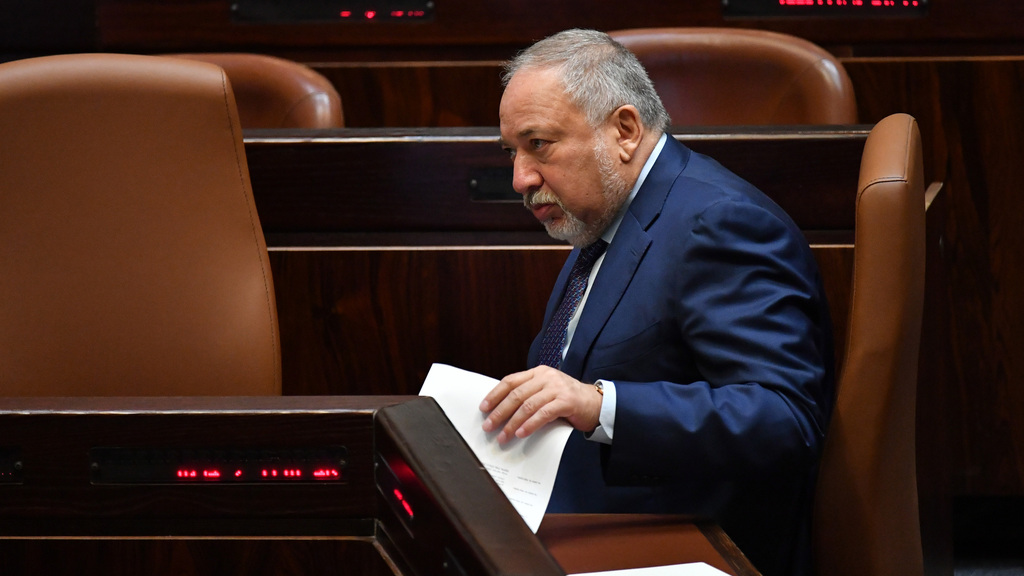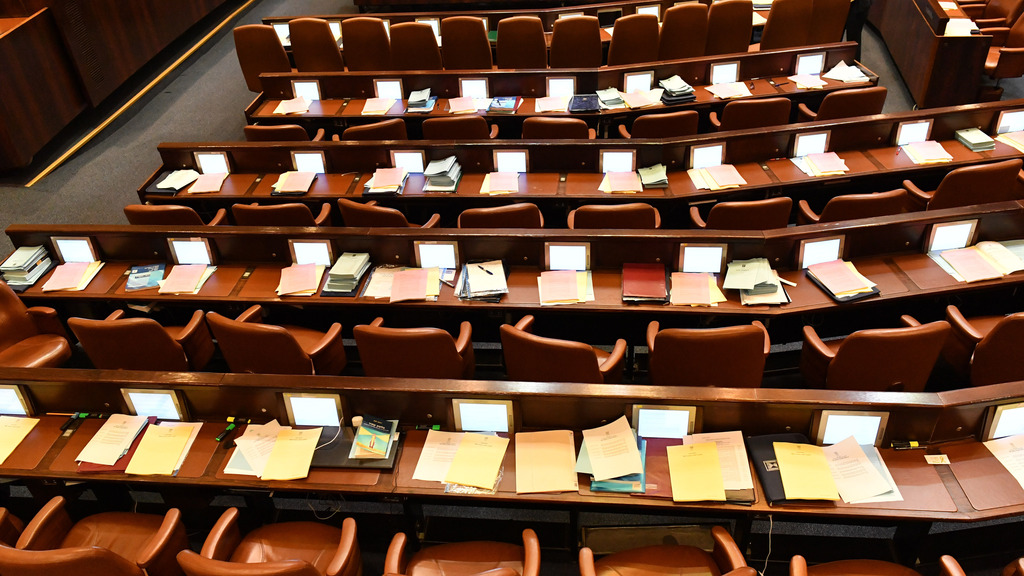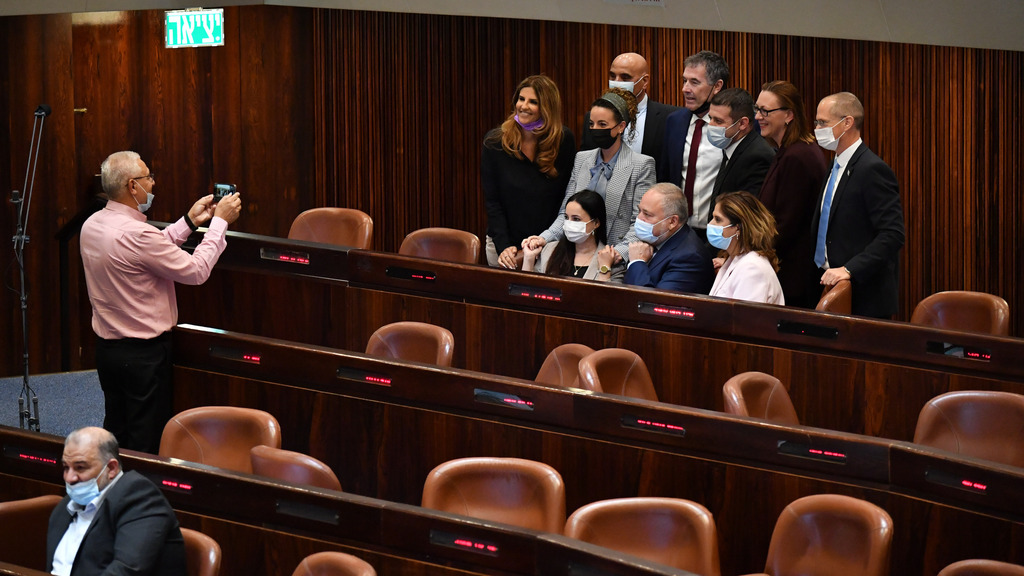The Knesset began on Tuesday to debate the proposed 2021-22 state budget, the first in more than three years, which was tabled by Prime Minister Naftali Bennett's coalition government.
Deliberations will last 33 hours and will include 600 objections from the opposition, and will be put to a final vote late on Thursday.
3 View gallery


Finance Minister Avigdor Liberman in the Knesset as budget deliberations begin on Tuesday
(Photo: Yoav Dudkevich)
Failure to pass the bill would result in the automatic dissolution of the government.
The parliamentary session began with the presentation of the final wording of the bill by the chair of the parliamentary finance committee, after it passed its preliminary reading in October.
Finance Minister Avigdor Liberman said the 2021-2022 state budge was prepared 142 days after the government was established. "The last time the Knesset voted on a budget bill was in March 2018," he said.
Former Prime Minister Benjamin Netanyahu refused to pass a budget - allegedly out of political considerations - in an attempt to back out of his commitment to Blue and White leader Benny Gantz, who would see him assume the position of prime minister in a power sharing deal.
Because of the coalition's narrow majority, opposition members have been attempting to identify possible defectors among back benchers in the hopes that the bill would fail, with efforts concentrating on members of Bennett's Yamina party and members of the Islamist Ra'am party.
Members of the opposition have said any defectors from Yamina would be received with open arms in the folds of Netanyahu's right-wing opposition after they contribute to the fall of the government, alluding to a secure place in the Likud party list in the next two election cycles.
The coalition was also attempting to move at least one vote to their column in order to ensure the passage of the bill with a decisive majority.
Among others, members of the predominately Arab Joint List alliance have been approached by Housing Minister Ze'ev Elkin who is charged with coordinating between the government and the Knesset.
Elkin hopes to secure an agreement of MKs to either support the government bill or at the very least leave the plenum during the vote, thereby depriving the opposition of votes.
Leader of the Joint List Ayman Odeh said publicly that his members will all vote against the proposed budget because it "discriminates against Arabs."
Both the coalition and the opposition instructed their members to attend the vote and demanded their attendance in and around the plenum during deliberations, so as to be available to cast their votes at short notice.



